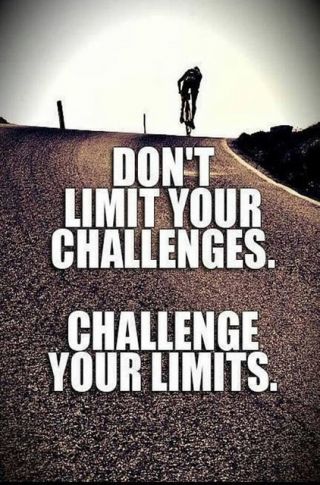As I listen to women talk about their newly established rules for the New Year, I hear comments such as "I really shouldn’t have eaten all those sweets," "I got carried away over the holidays and ate like a pig," or "I never went out once for a walk—what a loser—I need to make up for all the sitting around I did." Sound familiar?
You don’t have to look far, or listen for very long, to encounter articulations of guilt in daily life. Online and offline, references to guilt crop up in myriad contexts and conversations. For example, there is "food guilt," "alcohol guilt," "post-holiday guilt," and "relaxation guilt." People have "gone on a guilt trip," been "put on a guilt trip," enjoyed "guilt-free me time" and "guilt-free eating," purchased "guilt cake," "guilt flowers," and "guiltaccinos," which according to Urban Dictionary are “fair trade coffee, ordered either as a result of self-inflicted guilt,or pressure from more socially conscious peers." Many people also have admitted feeling both "exercise-guilt," and "not-exercising guilt." Publications abound seeking to comfort, cajole, and commiserate with the guilt sufferer. Such confessions and expressions of feeling guilty about eating too much but exercising too little are particularly common among women. The admissions of exercise-related guilt are the focus of my research.
Guilt is described in psychology literature as a self-conscious emotion that is produced when individuals perceive themselves to have provoked “a negative outcome by acts of commission or omission” (Fontaine, 2009). We feel guilty when we are doing the "wrong" thing or failing to do the "right" thing. When it comes to exercise-related guilt, those feelings have a familiar tinge to them. I have done the wrong thing: I opted for the carrot cake instead of the carrots, and I feel I have to walk farther to burn it off. Or I failed to do the right thing: perhaps I skipped my afternoon walk to browse around the bookstore a little longer.
During my study, I conducted multiple interviews with more than a dozen middle-aged women, most of whom were mothers. Only one considered herself an avid exerciser, a few more called themselves “somewhat regular” or “haphazard” exercisers, but most did not think of themselves as "exercisers" at all. Several of my participants were clearly distressed by their feelings of guilt from their sense of failure about not exercising. They admitted they often exercised because they “felt fat.” Even though they believed this might be the “wrong motivation,” they felt obligated to perform the motions despite their resentment toward societal pressure to be fit and thin. One woman explained that while she can understand why advertisers and health promoters encourage their target audience to rehearse "needs" and "shoulds" as a motivational tool, the burden of the resulting guilt “hurts you emotionally even if it does make you exercise.” Her emotional health was far more important and sacred to her than the number on the scale. But she could not escape the needs and shoulds—the expectations—at large in society.
Interestingly, the grip of exercise-related guilt is not a feature exclusively of those who health promoters and fitness advocates might deem "slackers." Whatever the activity level or fitness gains my participants had achieved, they felt they should be doing more. There was always some aspect of their health or fitness or body they could point to as not good enough. For example, one woman, who was determined to fit exercise into her life admitted, “I feel guilty about not exercising almost every day!” And another woman, who worked as a personal trainer and exercised seven days a week confessed, “I still do feel guilty if I give myself a 'rest’ day from exercise, and it will often prey on my mind well into the evening if I have missed a gym session.”
Guilt often plays a large part in motivating women to take up and keep exercising. It is sometimes called a “prosocial” emotion (Leith & Baumeister, 1998, p. 2) that makes women feel accountable to others and thus more likely to keep their promise to exercise. Although guilt might bring some women to exercise, and thus seem potentially beneficial, psychotherapist Maud Purcell (2012) suggests instead that guilt is a “destroyer of emotional energy,” which “leaves you feeling immobilized in the present by something that has already occurred.” For example, a recurring perception of constantly falling short requires significant amounts of emotional energy that renowned feminist scholar Adrienne Rich (1976) describes as “an undramatic, undramatized suffering” (in Ehrenrich & English, 2005, p. 251). One of my participants talked of her long history of receiving advice from her physician to exercise as a way to combat her weight gain. While she often took the advice and started exercising, she lamented to me: “But I can’t keep it up very long, and it seems very easy to just stop. I think this history has a cumulative effect and exacerbates the feeling of guilt when I hear about exercise.” She summarized her response to the exercise prescription she has received over the years as “guilt, agreement, and then ultimately helplessness.”
Dr. Esther Sternberg (2001) notes that continually feeling guilty actually accumulates to stress. Psychopharmacology research has further linked guilt feelings with depression (Nutt et al., 2007; Torrente, Gelenberg, & Vrana, 2012) and refers to guilt as “introspective hostility” (BAP, 1990, p. 306). Philosopher and educational advocate Nel Noddings (2002) concludes that “guilt is unhealthy when it persists without justification, when we blame ourselves even though disinterested observers would find us innocent” (p. 217).
This sounds like most of the women in my study, who berated themselves for their "lack of discipline," "lack of self-control," or "lame willpower," when the subject of exercise, or even general health, came up in conversation. As one participant said:
"...many days I do manage to get up and get my workout in the wee small hours of the morning—leaving my house around 4:45 to head to the gym or out for a run. But on the days that I don’t, I feel guilty and spend the day beating myself up. Why am I so weak? I should have gotten out of bed. I should have my workout done. Now, when am I going to find the time to work it in?"
Can you imagine any observer finding this woman guilty of insufficient willpower? Nonetheless, her guilt feelings seem to consistently intrude on her peace of mind on the days when she doesn't achieve what most women would consider extreme efforts to exercise. Another participant said: “When I hear the word exercise, I always tell myself that I need to do more exercise!” And another: “If others around me seem to be able to fit exercise into their schedule quite easily, then those feelings of guilt surface again and again if I'm struggling with fitting it into my schedule.” And yet the idea that guilt is normal (if not necessary), and therefore innocuous, persists in both the messaging and the mentoring employed in the fitness industry.
In my investigation, I came to realize that the word "exercise" is saturated with guilt and often shame. Where does this sense of failure come from? Remember the societal expectations, the needs and shoulds, I mentioned earlier. Many of those expectations are conveyed through incessant advertising voices surrounding us, urging us to feel better, look better, and generally improve ourselves, perhaps via the purchasing of some fitness product or another. These messages often include images of perfectly sculpted bodies (Grabe, Ward, & Hyde, 2008), suggesting a "normal" standard of fitness, which when we fail to achieve it, makes us feel guilty. Such texts further imply that we currently are not sufficiently fit, happy, or healthy. Both proscriptive (don’t/shouldn’t) and prescriptive (do/should) messages about exercise have the potential to create a sense of obligation and thus feelings of guilt if unmet. Figure 1, for example, conveys a "don’t/shouldn’t" perspective to offer tips for staying fit, while Figure 2 delivers a "do/should" message to inspire women to improve themselves.


Jennifer Hargreaves and Patricia Vertinsky (2007) suggest we live in a culture that equates fitness with goodness. In other words, we use exercise “for the moral value and personal responsibility of keeping the body young and fit” (p. 6). Fit, slim women are considered "disciplined," "self-controlled," and thus "good" and worthy (Jacobs Brumberg, 1998; Mansfield, 2011). So if the expectation to exercise and to be fit and thin is linked to being a good person—to a person who does the "right" thing—it is understandable that not doing this good and right thing often induces guilt feelings.
Exercise and guilt were closely related in the lives of the women I spoke to, so much so that they didn’t tend to question the feelings of guilt when they failed to keep up an exercise program or opted to do something else instead of exercise. I want to disrupt the notion that guilt is positive as long as it makes us exercise. But telling someone that they shouldn't feel guilty can just increase those guilt feelings. And suggesting that someone should stop thinking about exercise or about their body is to impose a new (and likely impossible) standard to meet or fail to meet. So what can be done about these unwarranted, and sometimes chronic, guilt feelings about exercise? Is there a way to think about exercise without feeling the guilt of impending "failure"?
My participants would tell you that critiquing the source of their guilt in a given situation helps them see the many ways in which societal forces—one of which is mass media—can manipulate them and make them feel guilt that is unwarranted. For example, thinking about the objectives of a given image or message, and about the financial aims of advertisers, helps my participants shift from being passively and personally accused to having a sense of who can accuse them. This is one mechanism used by women in my study to mitigate their sense of "failure" and guilt associated with exercise—in other words, to think about exercise without automatically feeling guilty.
Works Cited:
BAP. (1990, 15-18 July). Paper presented at the British Association for Psychopharmacology BAP Annual Meeting, 15-18 July, Cambridge, England
Currie, D. H., & Wiesenberg, S. E. (2003). Promoting women's health-seeking behavior: Research and the empowerment of women. Health Care for Women International, 24(10), 880-899.
Dworkin, S. L., & Wachs, F. L. (2009). Body panic: Gender, health, and the selling of fitness. New York: NYU Press.
Fontaine, J. R. J. (2009). Guilt. In D. Sander & K. R. Scherer (Eds.), The Oxford companion to emotion and the affective sciences (pp. 199-200). Oxford, UK: Oxford University Press.
Grabe, S., Ward, L. M., & Hyde, J. S. (2008). The role of the media in body image concerns among women: A meta-analysis of experimental and correlational studies. Psychological Bulletin, 134(3), 460-476.
Hargreaves, J., & Vertinsky, P. A. (2007). Introduction. In J. Hargreaves & P. A. Vertinsky (Eds.), Physical culture, power, and the body (pp. 1-24). London: Routledge.
Jacobs Brumberg, J. (1998). The body project: An intimate history of American girls. New York: Vintage Books.
Leith, K. P., & Baumeister, R. F. (1998). Empathy, shame, guilt, and narratives of interpersonal conflicts: Guilt-prone people are better at perspective taking. Journal of Personality, 66(1), 1-37. doi: 10.1111/1467-6494.00001
Mansfield, L. (2011). Fit, fat and feminine? The stigmatization of fat women in fitness gyms. In E. Kennedy & P. Markula (Eds.), Women and exercise: The body, health and consumerism (pp. 81-100). London: Routledge.
Noddings, N. (2002). Starting at home: Caring and social policy. Berkeley, CA: University of California Press.
Nutt, D., Demyttenaere, K., Janka, Z., Aarre, T., Bourin, M., Canonico, P. L., . . . Stahl, S. (2007). The other face of depression, reduced positive affect: the role of catecholamines in causation and cure. Journal of Psychopharmacology, 21(5), 461-471. doi: 10.1177/0269881106069938
Posner, R. A. (1999). The problematics of moral and legal theory. Cambridge, MA: Belknap Press of Harvard University Press.
Purcell, M. (2012, 6 July 2012). Guilt: The crippling emotion Retrieved 25 August, 2012, from http://psychcentral.com/lib/2006/guilt-the-crippling-emotion/
Rich, A. C. (1976). Of woman born: Motherhood as experience and institution. New York: W W Norton & Co.
Sternberg, E. M. (2001). The balance within: The science connecting health and emotions. New York: W.H. Freeman and Co.
Torrente, M. P., Gelenberg, A. J., & Vrana, K. E. (2012). Boosting serotonin in the brain: Is it time to revamp the treatment of depression? Journal of Psychopharmacology, 26(5), 629-635. doi: 10.1177/0269881111430744
Wasylkiw, L., Emms, A. A., Meuse, R., & Poirier, K. F. (2009). Are all models created equal? A content analysis of women in advertisements of fitness versus fashion magazines. Body Image, 6(2), 137-140. doi: DOI: 10.1016/j.bodyim.2009.01.005
Copyright Anita Harman, University of Otago, New Zealand




